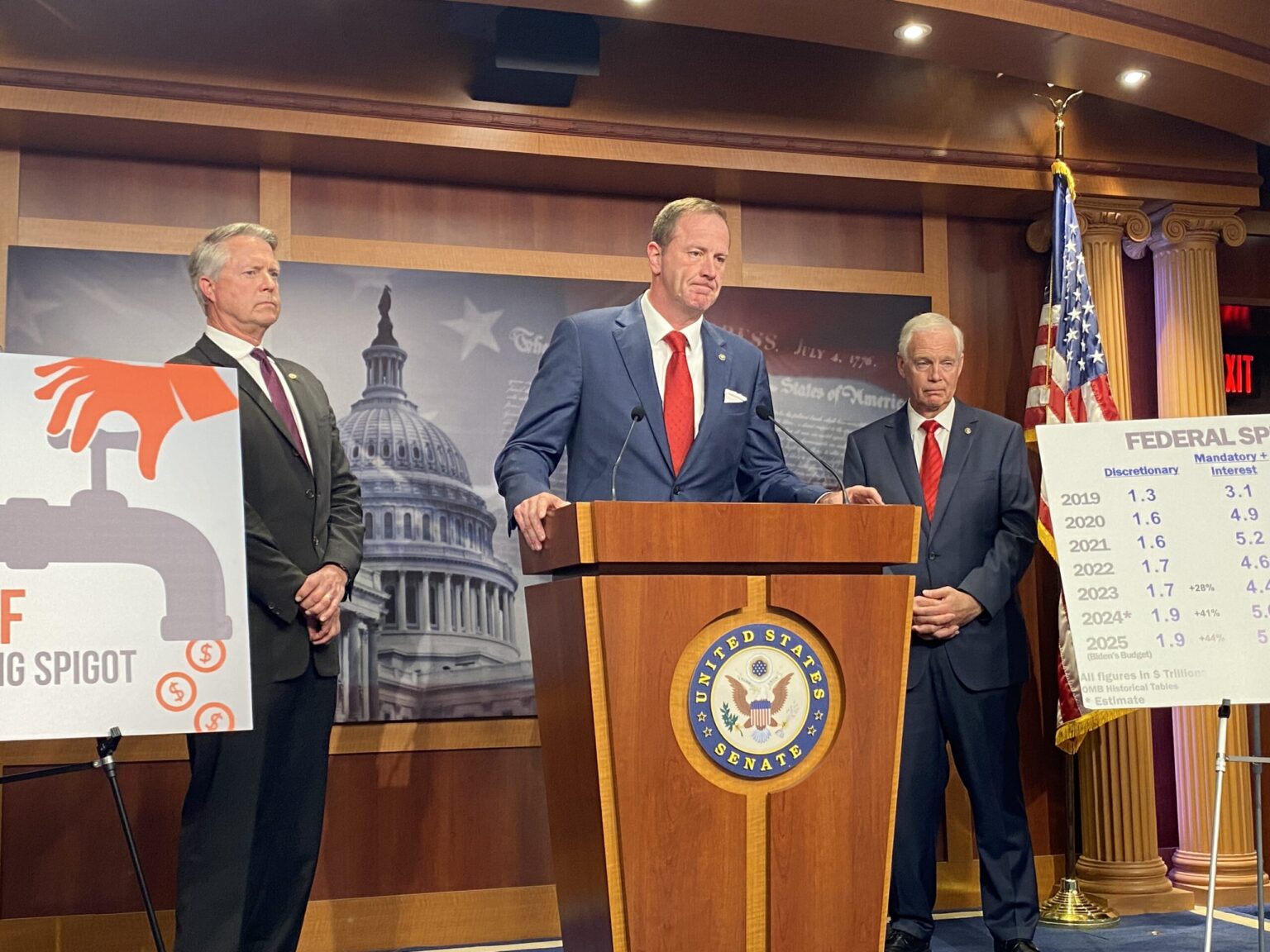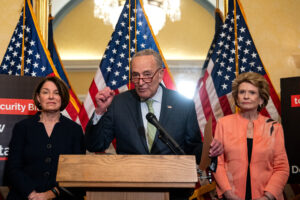5:00
News Story
U.S. Senate GOP tries to block states from spending some of their COVID relief cash
WASHINGTON — The U.S. Senate on Wednesday rejected efforts to roll back guidance from the Treasury Department regarding how state and local governments can spend funding approved by Congress during the COVID-19 pandemic.
The 46-49 vote on the Congressional Review Act resolution ended an attempt by several GOP senators to block the Biden administration from changing the definition of “obligation” as it relates to State and Local Fiscal Recovery Funds and the timeline for spending some of that money.
Missouri Republican Sen. Eric Schmitt said during floor debate that the Treasury Department’s change in guidance, which was released in November, was trying to “pull a fast one” on Congress.
“Treasury’s attempted sleight of hand to keep the COVID spending spigot on is an insult to Congress and those who believe in our Constitution, as well as a complete misuse of taxpayer dollars,” Schmitt said.
The fund for state and local governments, Schmitt said, was intended to assist with “revenue shortfalls tied to the COVID-19 pandemic” and the law clearly stated that “all costs incurred with money from this fund must be incurred by Dec. 31, 2024.”
The interim final rule that the Treasury Department released around Thanksgiving extended that deadline by two years for “administrative and legal costs, such as compliance costs and internal control requirements,” he said.
“This rule ensures that funding does not go to bridges or broadband, but to bureaucrats,” Schmitt said.
Projects affected in multiple states
Oregon Democratic Sen. Ron Wyden spoke against the CRA resolution during floor debate, saying it could have impacted 17 projects in Georgia, 160 in Michigan, 342 in Ohio, 50 in Arizona, 404 in Montana and 73 in West Virginia.
“Nationwide there could be thousands of projects closed. Tens or even hundreds of jobs lost,” Wyden said. “This one is one of the most unusual votes that I’ve seen recently, a true head scratcher.”
Wyden said he didn’t “see a good reason for the United States Senate to backtrack on solid, bipartisan progress and have this chamber act in a way that leaves more of our nation’s infrastructure in a state of disrepair.”
Schmitt said during a press conference before the vote that the claim the CRA resolution would have impacted projects already underway was a lie.
“Essentially the obligations that are committed before the end of 2024, according to existing law, will be honored,” Schmitt said. “What this says is that you can’t extend that out into ‘25 and ‘26. That was never the congressional intent here.”
Kansas Republican Sen. Roger Marshall, also speaking at the GOP press conference, said the CRA resolution would claw back about $13 billion and went as far as calling it “illegal spending.”
“The clock is going to run out, but Joe Biden is trying to circumvent the law once again,” Marshall said, adding that the COVID-19 pandemic is over and spending from those laws needs to wind down.
Counties, cities opposed
Schmitt introduced the two-page CRA resolution in February along with Marsha Blackburn of Tennessee, Mike Braun of Indiana, Tom Cotton of Arkansas, Joni Ernst of Iowa, Bill Hagerty of Tennessee, Ron Johnson of Wisconsin, Cynthia Lummis of Wyoming, Marshall and Rick Scott of Florida.
The National Association of Counties, the National League of Cities and the Government Finance Officers Association urged lawmakers to vote against the CRA in a written statement released Wednesday before the vote.
“The $350 billion SLFRF provided $65.1 billion to every city and county in America, and since 2021, localities have used these crucial resources to meet the unique needs of residents and support long-term economic prosperity,” the statement read.
The three organizations wrote that the Treasury Department’s interim final rule “recognized the importance of flexibility in facilitating the effective rollout of recovery funds, including our ability to use funds for certain personnel costs and to re-obligate funds where necessary.”
The White House released a Statement of Administration Policy on Wednesday, saying that President Joe Biden would veto the CRA had it reached his desk.
The CRA resolution, it said, “could result in projects being canceled midstream, reduced project management and oversight, and higher costs as state and local governments are forced to contract out programs.”
“Nearly all SLFRF funds have been committed to projects, including infrastructure and disaster relief projects made eligible by bipartisan legislation,” the SAP read. “S.J. Res. 57 would create unnecessary uncertainty for recipients that are executing on projects, jeopardize important work underway, and inappropriately constrain Treasury’s ability to address ongoing implementation issues.”
Our stories may be republished online or in print under Creative Commons license CC BY-NC-ND 4.0. We ask that you edit only for style or to shorten, provide proper attribution and link to our website. AP and Getty images may not be republished. Please see our republishing guidelines for use of any other photos and graphics.




